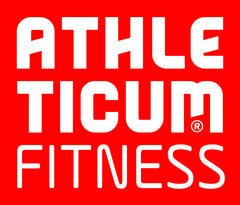HOW TO PACK UP YEARS WHILE KEEPING ILLNESS AWAY

Geroscience, a scientific field dedicated to comprehending and mitigating the fundamental factors of ageing to enhance the duration of a healthy lifespan, is currently undergoing a significant surge in efforts to uncover the enigmas surrounding the ageing process. This heightened interest is unsurprising, considering that even individuals who maintain good health into their later years may find it challenging to dispel concerns about potential health decline with the passage of time.
However, avoid labelling potential cures as anti-aging therapies. The term comes with the connotation of an industry promoting products that claim to turn back time, ranging from facial creams to supposed magic pills. Geroscientists emphasise that such assertions are unfounded. Instead, they are deeply involved in serious research at reputable institutions, investigating medications that could authentically slow down the ageing process. Fortunately, numerous compounds exhibit promise in both mice and humans, with some already progressing in clinical trials.
Introducing the optimists—scientists embarking on a fascinating journey into the field of "geroscience." Their mission isn't about seeking immortality but rather a practical goal: addressing the root causes of ageing. They aim to combat the disabilities and diseases often associated with old age, envisioning a quest to extend the years of vitality and compress the inevitable health challenges into a shorter timeframe. Some scientists even imagine creating a medication for midlife individuals, easily integrated into their routine like a daily vitamin with profound biological effects.
What prompts the sudden urgency to explore the intricacies surrounding the ageing phenomenon? Well, by 2030, 73 million baby boomers in the U.S., and globally, around one billion people will have reached the age of 65 and over. The challenge we face is that despite longer lifespans, the elderly aren't necessarily enjoying better health.
Yet, the path to creating these medications is fraught with obstacles, encompassing the need for increased funding, challenges in study designs, and navigating through persistent hype. Although modern medicine has effectively doubled our average lifespan, it comes with a price — observing the vulnerabilities and illnesses associated with old age. As cells decelerate, DNA undergoes deterioration, and the immune system weakens, our susceptibility to various ailments rises. The conventional belief was that the decline in ageing was unavoidable until experiments in the 1980s and '90s suggested otherwise.
Jump to the present day, and researchers in the field of ageing science are exploring potential compounds that may decelerate the ageing process, particularly in worms, fruit flies, and mice. One significant challenge for this field is demonstrating that a compound can prevent age-related diseases in humans. Picture administering the drug to healthy individuals and observing their health throughout the ageing process—a costly and time-consuming undertaking.
Despite the advancements made, the geroscience revolution is unfolding gradually. Transformative changes in clinical practice are still awaited, and researchers are actively accumulating data through ongoing trials. Skepticism and caution persist, underscoring the necessity for patience and humility. While many scientists hold optimistic views on the imminent geroscience revolution, the enduring advice for enhancing health span remains consistent—maintain a balanced diet, engage in regular exercise, prioritise vaccinations, and abstain from tobacco and alcohol. Indeed, sometimes the oldest wisdom proves to be the wisest.




